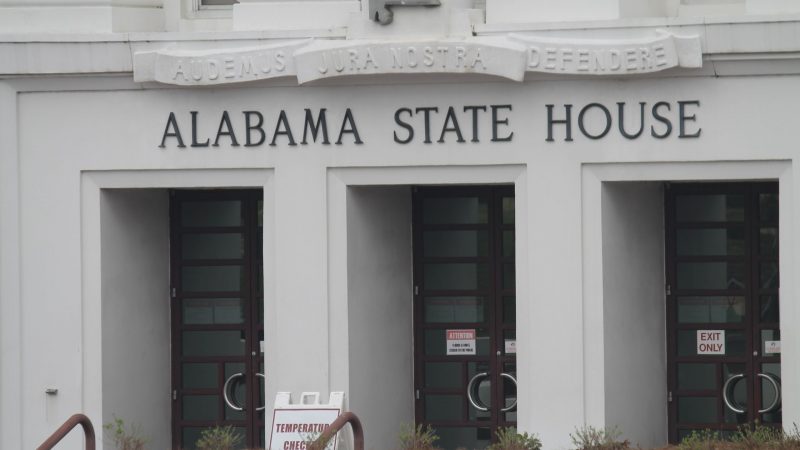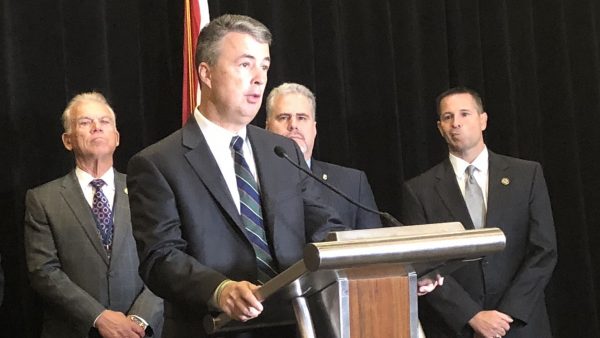Report: Alabama Community Corrections Harms Low-Income Participants
A recent report from the Southern Poverty Law Center says Alabama’s community corrections program unfairly burdens low-income people and threatens public safety. Community corrections, operating in 51 of Alabama’s 67 counties, is overseen by the state Department of Corrections, but run locally. It’s designed to be an alternative to prison.
The report’s main criticism is that community corrections relies on fees as a primary revenue source. These include fees for drug testing, supervision or electronic monitoring.
“This finding is very troubling because essentially it puts these programs in a very compromised role,” SPLC attorney Ivy Wang says. “They’re trying to supervise people and make sure that they succeed but also looking at these same people as sources of revenue. And we see that as inherently a conflict of interest.”
The Department of Corrections does not have uniform guidelines on fees, so the cost to participants varies widely from county to county.
The report also likens work release to indentured servitude. Wang says work release participants are usually living in a facility where they are monitored and can’t leave, as opposed to their homes. Often, a significant part of their pay goes to the program.
“Also they’re working under the threat of incarceration if they’re seen as not complying. So these just create conditions that are ripe for exploitation,” Wang says.
Wang argues fees put public safety at risk. She says survey data shows some people commit crimes, such as steal or sell drugs, to have money to pay fees ordered by the judicial system. She adds the program is intended to help prepare people to find work and support themselves after their sentences are through. But the current system hampers that. “You’re putting people under pressure to pay. They might be taking money away from necessities that they would otherwise have spent it on,” Wang says.
She says even though community corrections is legally authorized to supervise those convicted of a crime, many places use it to oversee those who have not yet been convicted. “[This] completely upends the presumption of innocence,” Wang says.
Wang says while they agree with the aim of community corrections as an alternative to prison time, it needs more support.
“The major solution we think is to fully fund these programs, which we think is something that the legislature seriously needs to look at,” says Wang.
The Southern Poverty Law Center is a program sponsor of WBHM, but the news and business departments operate independently.
Photo by Michael Coghlan
Q&A: A former New Orleans police chief says it’s time the U.S. changes its marijuana policy
Ronal Serpas is one of 32 law enforcement leaders who signed a letter sent to President Biden in support of moving marijuana to a Schedule III drug.
How food stamps could play a key role in fixing Jackson’s broken water system
JXN Water's affordability plan aims to raise much-needed revenue while offering discounts to customers in need, but it is currently tied up in court.
Alabama mine cited for federal safety violations since home explosion led to grandfather’s death, grandson’s injuries
Following a home explosion that killed one and critically injured another, residents want to know more about the mine under their community. So far, their questions have largely gone unanswered.
Crawfish prices are finally dropping, but farmers and fishers are still struggling
Last year’s devastating drought in Louisiana killed off large crops of crawfish, leading to a tough season for farmers, fishers and seafood lovers.
Lawmakers consider medical cannabis revamp
It’s been three years since Alabama lawmakers passed legislation establishing a system to govern medical cannabis in the state, yet not one prescription for the drug has been filled. The rollout has been delayed by lawsuits and conflict over the licensing process.
Man arrested in connection with device that exploded outside Alabama attorney general’s office
Kyle Benjamin Douglas Calvert, 26, of Irondale, Alabama, was arrested Wednesday on charges of malicious use of an explosive and possession of an unregistered destructive device, the U.S. attorney’s office said.







